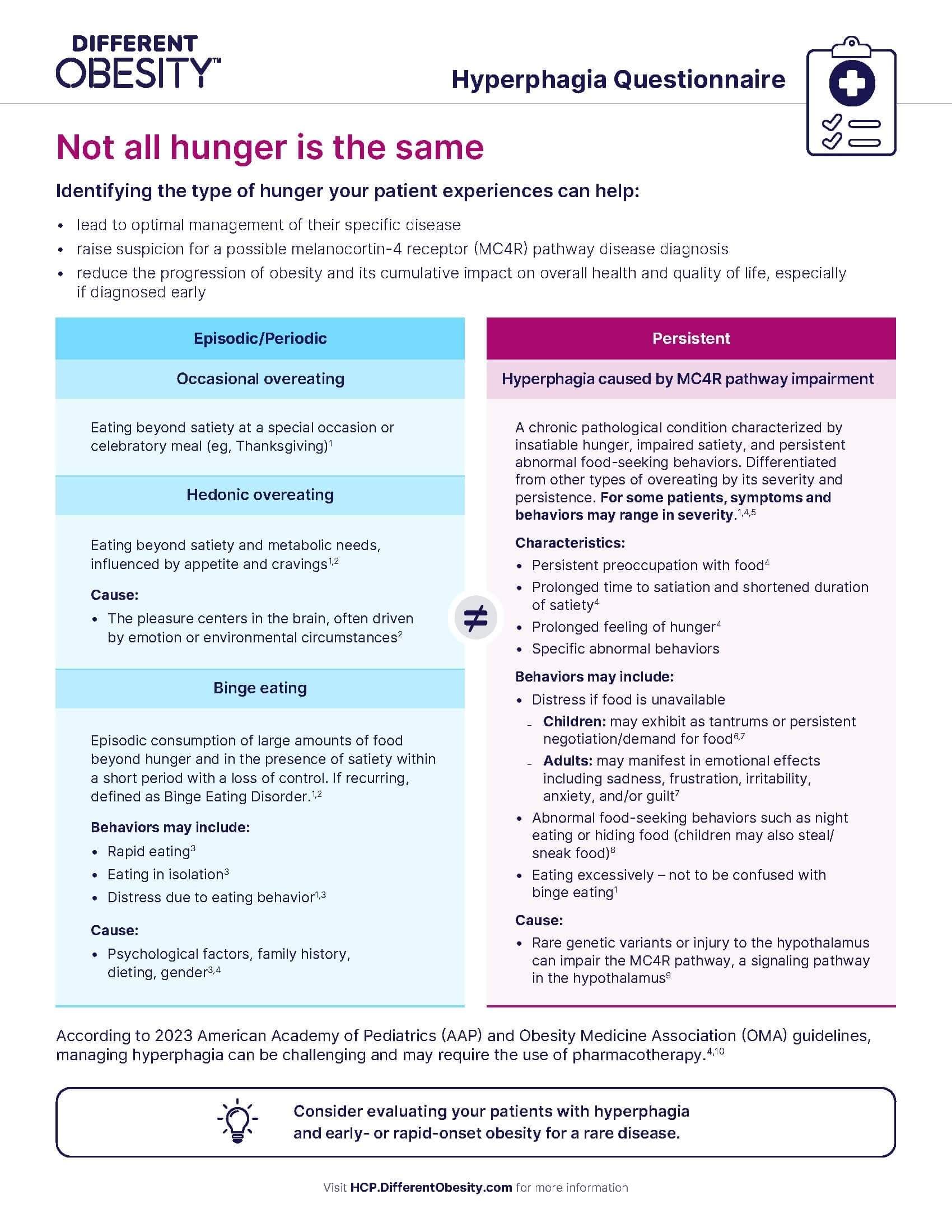Monogenic Obesity
LEPR deficiency
Leptin receptor (LEPR) deficiency is a disease caused by biallelic variants in the LEPR gene1
There are approximately 500-2000 people living with LEPR deficiency in the United States2
The LEPR gene encodes for the LEPR protein1:
- Biallelic variants in the LEPR gene that cause leptin receptor deficiency prevent the receptor from responding to leptin
Get connected. Find resources and get more information.
Signs and symptoms of LEPR deficiency1,3-5
- Hyperphagia
- Obesity
- Type 2 diabetes by early adulthood
- Hypogonadotropic hypogonadism
- Delayed puberty
- Hyperinsulinemia
Signs and symptoms related to obesity3:
HyperphagiaChronic pathological condition characterized by insatiable hunger, impaired satiety, and persistent abnormal food-seeking behaviors
Early-onset obesityEarly-onset, severe obesity
Downloadable
Do you suspect your patient may have LEPR deficiency? Use this questionnaire to identify hyperphagia in your patients with early-onset obesity.
Genetic inheritance
LEPR deficiency is inherited in an autosomal recessive manner.5
Individuals can have biallelic or heterozygous variants of LEPR. Variants may be identified through genetic testing. Individuals with heterozygous LEPR variants may experience LEPR insufficiency and develop some symptoms of LEPR deficiency, such as hyperphagia and obesity1:
Heterozygous variants of LEPR are found more frequently in individuals with obesity than in normal-weight individuals
Unlike the homozygous disease (LEPR deficiency), individuals who are heterozygous for LEPR may not exhibit endocrine abnormalities
Diagnosis
Conditions like LEPR deficiency may be difficult to diagnose based solely on clinical manifestations, but genetic testing may be helpful.
Genetic testing through the Uncovering Rare Obesity® program is available for eligible patients.

Hear from patients about what it's like to live with hyperphagia.
Find out about a treatment option for obesity due to LEPR deficiency.

Personalized one-on-one educational support* for your patients living with LEPR deficiency
Rhythm InTune provides educational resources, wellness tips, and connection to a community for people living with LEPR deficiency
Patient Education Managers are employees of Rhythm Pharmaceuticals and do not provide medical care or advice. We encourage patients to always speak to their healthcare providers regarding their medical care.
